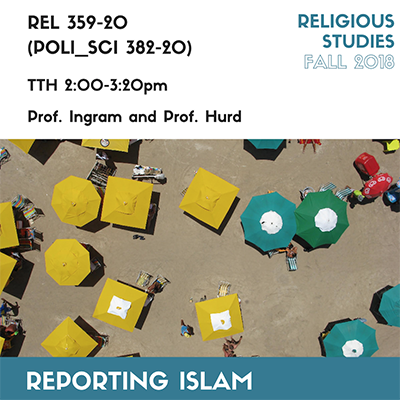Talking 'Religion' Project
Talking ‘Religion’: Publics, Politics and the Media
How can scholars and journalists doing cutting-edge work on religion, politics, and public life communicate their findings to, and learn from, each other? How can they communicate their work and its insights to public audiences in a way that is accessible and appealing without sacrificing nuance and complexity?
With the support of the Luce/ACLS Program in Religion, Journalism and International Affairs and based at Northwestern University, “Talking ‘Religion’: Publics, Politics
The project unites innovative thinkers in search of creative responses to the challenges of socially and religiously diverse worlds. We provide tools and templates for moving public discourse about religion and politics beyond the naïve celebration of religion as the source of morality, community, and freedom, or the denigration of religion as the root of global instability. We need new words.
Guiding questions include:
- What are the most effective ways for scholars and journalists to describe the complex intersections of global religious, legal, governmental, and economic practice at a historical moment in which notions of “secularism,” “modernity,” and “religious freedom” seem to have been exhausted?
- What are the optimal avenues for social scientists, humanists, and journalists to work together to improve public understanding of these issues?
- How can new possibilities for conceptualizing and reporting on religion and public life be articulated clearly and communicated effectively to audiences beyond the academy?
The project will host two symposia, visiting speakers, a team-taught undergraduate course, and graduate religion and media fellowships. These activities will build on our interdisciplinary Global Politics and Religion Research Group at the Buffett Institute for Global Studies.
Global Politics and Religion centers on the intersections in the study of religion, law, and public life. “Talking ‘Religion’” will amplify these connections and create new ones that will impact Northwestern and Chicago at a critical juncture in our nation’s public life.
Elizabeth Shakman Hurd and Brannon Ingram, co-organizers
Jump to: Symposium | Teaching | Reporting | Research Network
2022 Symposium
Global ‘Religion’: Invention, Translation, Critique
June 3, 2021
Northwestern University
This symposium will focus on how the category of religion has been received, translated, criticized, and transformed beyond its European “homeland.” This is crucial for understanding how this category, with its contested and multivocal intonations and its porous and fluctuating boundaries, has become global, mobile, and multivocal. This occurred first under colonialism and subsequently through the flows of capital, in the media, via transnational religious authorities, racialized governance practices, and through international law. The symposium brings together an interdisciplinary group of scholars whose work engages either with legal, political, and intellectual contexts beyond Europe and North America or with minoritized populations and practices in those regions.
For more information on the symposium event, please visit our event site.
2019 Symposium
Reporting Islam: Media, Policy, Politics
April 25–26, 2019
Northwestern University
Keynote lectures:
- Leila Fadel, NPR national correspondent covering issues of culture, diversity, and race
- Ramzi Kassem, professor of law at the City University of New York where he co-directs the Immigrant & Non-Citizen Rights Clinic
This international symposium will bring scholars of Islam, international and public affairs, education, race, and law together with practicing journalists and attorneys for a sustained reflection on the conventions and tropes that pervade contemporary public discourse on religion, with focused attention to coverage of Islam and Muslims in the United States and abroad.
In particular, we aim to foster a critical conversation about Countering Violent Extremism (CVE) initiatives, ‘radicalization,’ and journalistic coverage and scholarly debate on so-called religious violence.
We will explore methods and strategies of writing and
For more information on the symposium event, please visit our event site.
Teaching
Brannon Ingram and Elizabeth Shakman Hurd will co-teach “Reporting Islam,” at Northwestern in fall 2018. This course will bring together Medill School of Journalism and Weinberg College of Arts & Sciences students with an interest in Islam and Muslims in the United States, U.S. foreign policy, and the politics and practices of reporting on those topics.
 Through a combination of readings, site visits, individual and group projects, and critical writing assignments, the goals of this course are to:
Through a combination of readings, site visits, individual and group projects, and critical writing assignments, the goals of this course are to:
- Empower students to recognize the pitfalls of how Islam and Muslims are reported and represented in U.S. print media and other formats
- Innovate new ways of writing about Islam and Muslims that do not replicate the Islamophobic or Islamophilic tropes that dominate much of this reporting.
To these ends, the course will include a “master class” on reporting religion led by Manya Brachear, religion reporter for the Chicago Tribune. Students will also have an opportunity to participate in “Talking ‘Religion’”-related activities, including related lectures and the spring 2019 symposium.
The course syllabus is available here.
Reporting
Reporter Alex Ruppenthal and Asraa Mustufa have produced a report that draws on thousands of pages of records on Illinois' now defunct Countering Violent Extremism program, revealing previously unknown links with the FBI and local law enforcement. While it was the Trump administration which relaunched CVE grants this year, leading Democrats including Joe Biden and Kamala Harris have voiced support for the approach in the past, indicating that CVE is likely to have a future at DHS.
Research Network
The “Talking ‘Religion’” project is part of an interdisciplinary and transnational consortium of scholars led by co-PIs Nadia Marzouki (Sciences Po) and Elizabeth Shakman Hurd (Northwestern) that is working to rethinking the discourse and practice surrounding the concepts of "radicalization” and “violent extremism.”
The specificity of the contribution of this project lies in its ambition to constitute an international academic platform where national research and experiments on radicalization can be compared, confronted, and critiqued.
